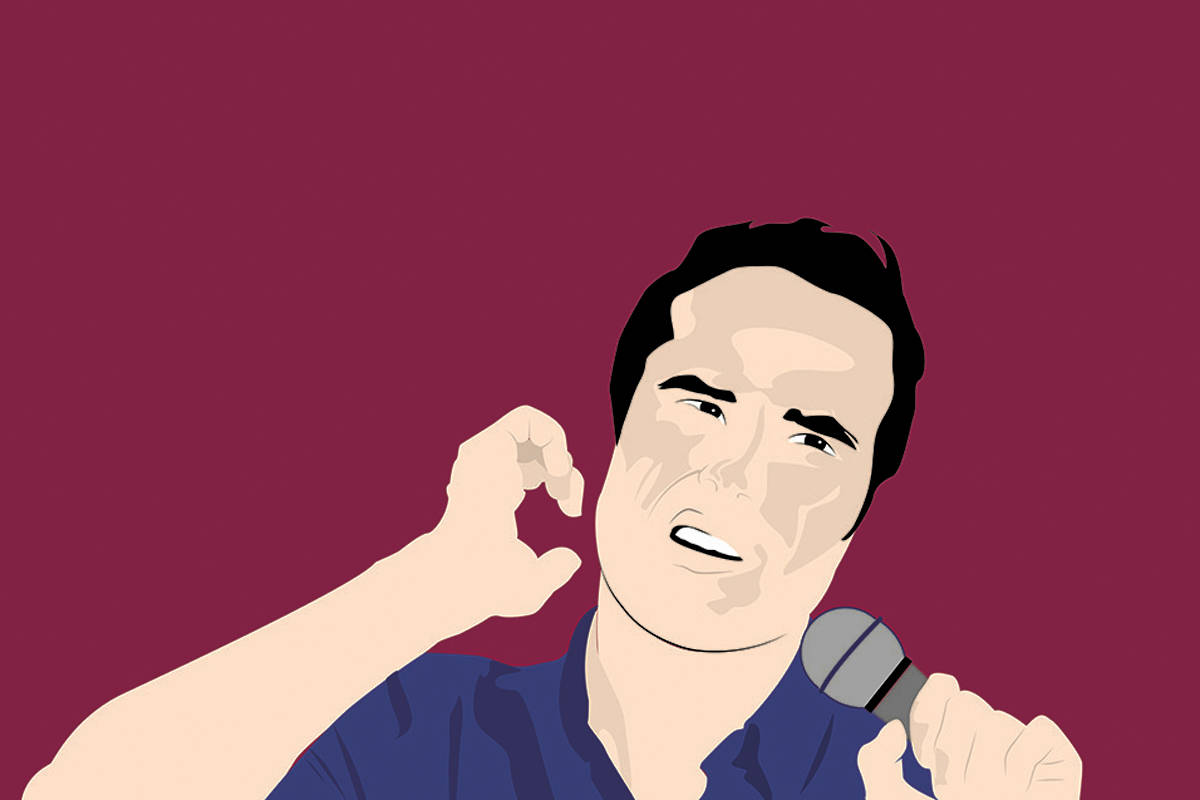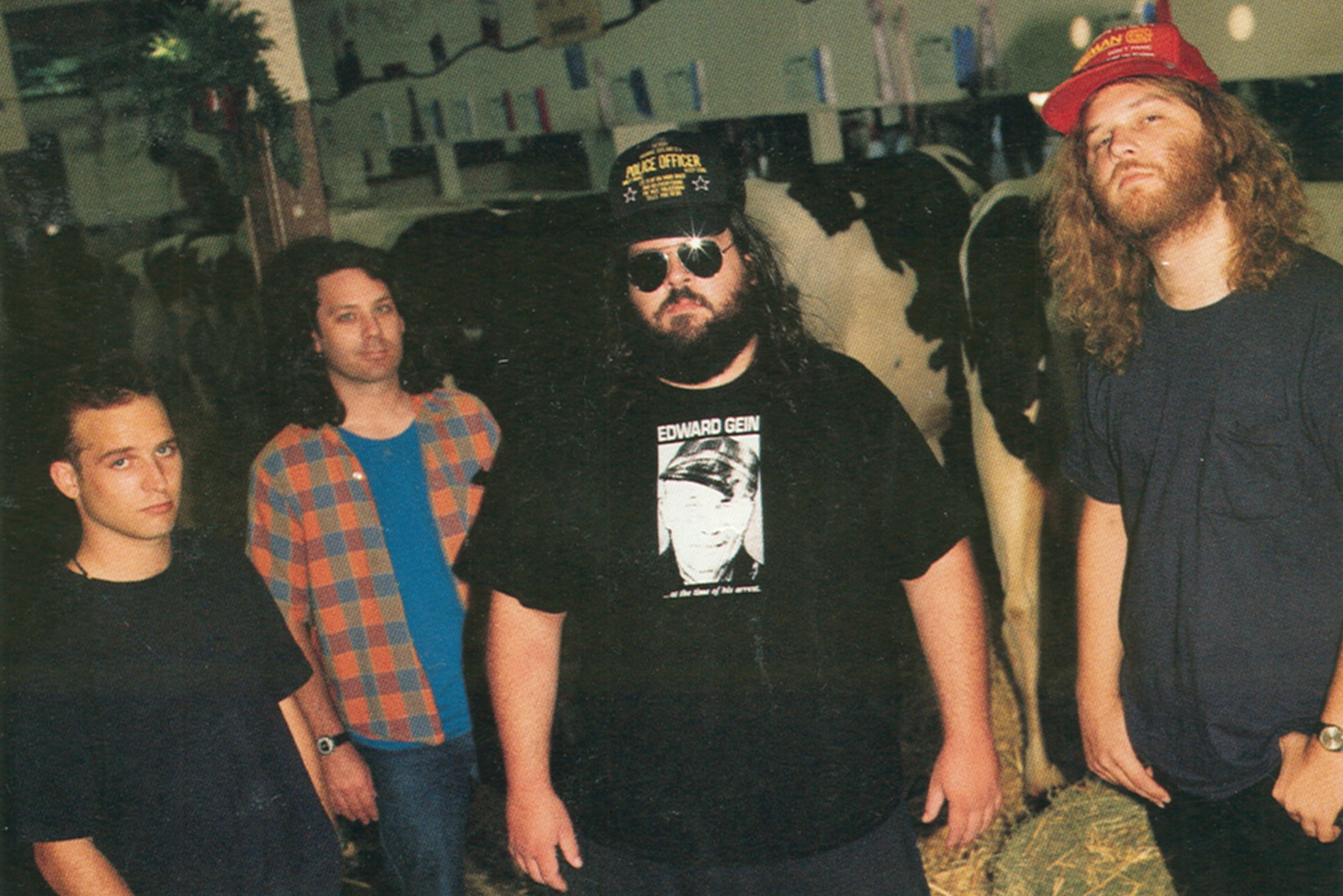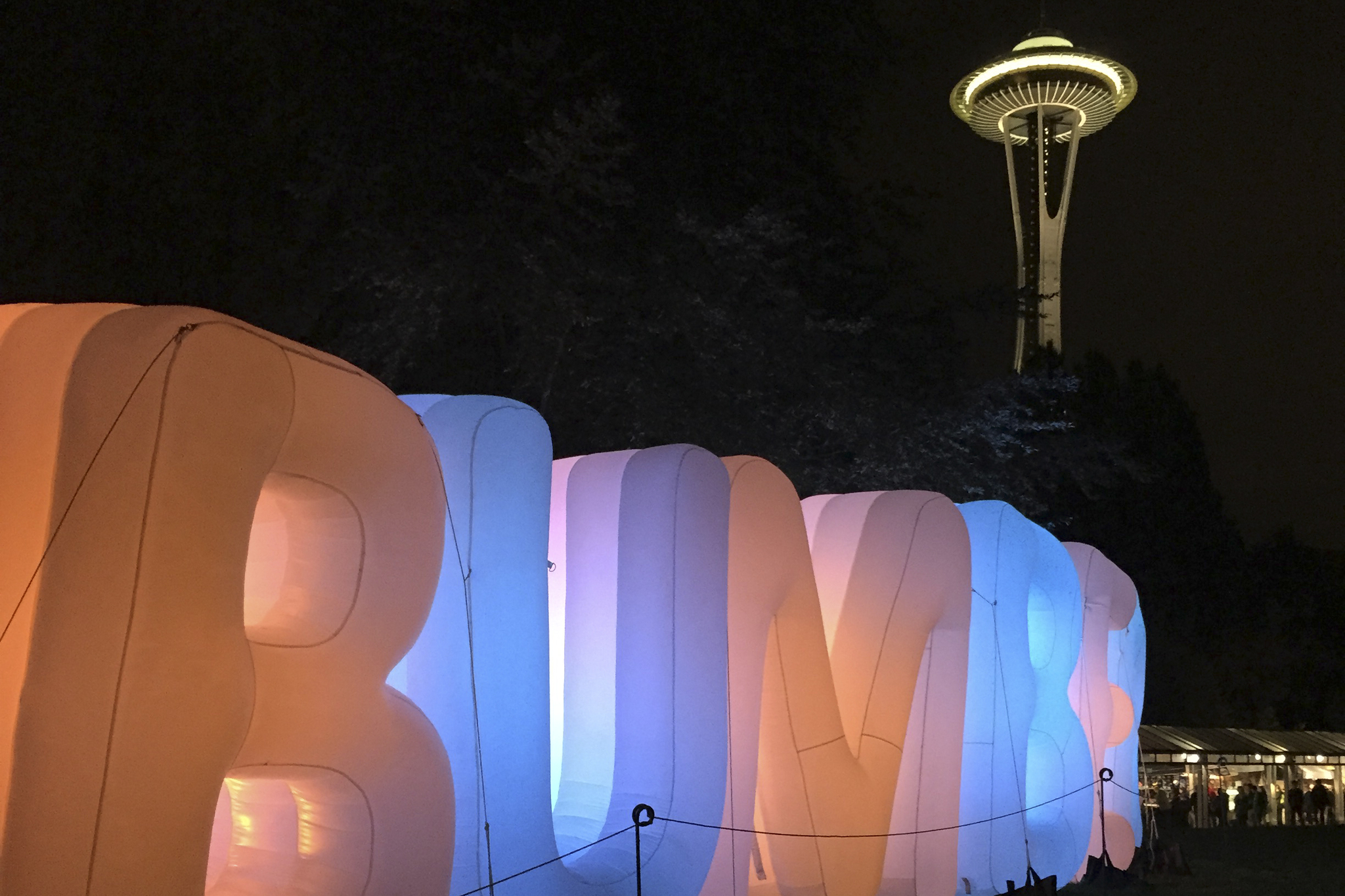It’s late on a Monday night at the Caroline Tavern in north Seattle, and the regulars are throwing back pints of cheap beer while playing pool and popping quarters into the bar’s lone pinball machine. The evening’s earlier musical entertainment now concluded, a pretty 20-something brunette scrolls through the songs on the bar’s wall-mounted digital jukebox until she finds one she likes, and the opening chords of AC/DC’s “Highway to Hell” fill the place with beautiful noise. The bar is still flush with patrons. Mondays are karaoke nights.
Every night of the week, in every neighborhood of Seattle, a karaoke show is going on. Each venue (usually bars or restaurants) offers a familiar scene: a group of semi-drunk amateurs taking to the stage to belt out a version of a favorite pop song—from Bonnie Tyler’s “Total Eclipse of the Heart” to the Eagles’ “Desperado.” Along with a book that lists the available songs, you’ll also find a video monitor that displays the words to each song and a PA system to play back the vocal-free tracks to sing along with.
But many of these venues have something else in common: a karaoke host playing pirated tracks. When you’re singing karaoke, chances are your backing track has been stolen.
Like the mainstream recording industry, the companies that produce karaoke tracks are in a financial tailspin. Karaoke tracks aren’t just the popular recordings you’re used to hearing with the lead vocals stripped away, but re-creations by studio musicians specifically produced for karaoke. Thanks to the rise of peer-to-peer file-sharing services like BitTorrent and the ubiquity of personal computers, consumers can copy and trade digital files with ease. This has put a major dent in the bottom line of companies like Sound Choice, which produces these tracks—and which once had 85 employees in its North Carolina offices, but now has just seven on the payroll.
In the ’90s, Sound Choice enjoyed profits in the tens of millions of dollars for its high-quality recordings, but current economic conditions have forced the company to stop producing new karaoke tracks altogether. This means no Lady Gaga or Katy Perry songs from the company that once produced an estimated 70 percent of all tracks played in karaoke venues. “It used to be, you pay for your music and water is free,” says Kurt Slep, Sound Choice’s CEO. “Now music is free and you pay for water.”
Karaoke was invented in Japan in the early ’70s and found popularity in the U.S. in the ’90s. Its growth has remained steady; Slep estimates that 40,000 to 50,000 venues across the country offer karaoke shows each week. This popularity has increased the demand for karaoke jockeys—KJs—which in turn has created an underground market for karaoke tracks, something Bill Marsten, a computer geek and longtime karaoke fan, was ready to capitalize on.
For a few hundred bucks—a fraction of the price of purchasing them legally—hopeful KJs can purchase hard drives from Marsten on Craigslist that are preloaded with tens of thousands of karaoke tracks. And the kicker? Marsten’s not even a little bit concerned about getting caught. “Over the years I’ve had to deal with all this bullshit,” Marsten says, “because I make no secret of what I do and how I do it. It is a grey area possibly, but yes, I’d say it’s perfectly legal.”
To make up for some of the revenue lost to pirates like Marsten, Sound Choice has adopted a new business model: lawsuits. Last year the company began suing both KJs and venues for trademark infringement when it discovers its tracks are being used illegally. So far the company has been quite successful. Three suits have been filed in western Washington alone, with more than 40 defendants named, including Ozzie’s in Lower Queen Anne, Yen Wor Garden in Greenwood, and the Hitchin’ Post Saloon in Federal Way. The company’s goal is to get karaoke hosts and venues into its “Get Legit or Quit” program, which offers amnesty to hosts who agree to destroy their pirated Sound Choice tracks and replace them with legitimate copies at a cost of few thousand dollars. Defendants who ignore the lawsuit face a default judgment that far exceeds the cost of getting legit.
At The Atlantic Crossing, a neighborhood pub in the Roosevelt District, Monday nights also mean karaoke. The bar’s tables are filled by two dozen or so regulars, who make their way to the tiny stage when called up by the KJ, cheered on by friends and a smattering of applause. A middle-aged, ponytailed man sings a rousing version of the Violent Femmes’ “Add It Up.” “Day after day,” he sings, going all out on the final line, “I get angry and I will say/That the day is in my sight/When I take a bow and say goodnight.” As if on cue, he bows in time with the lyric, eliciting screams from several females in the crowd, who holler as if he’s the Femmes’ Gordon Gano himself. For the song’s four minutes and 44 seconds, he is.
The karaoke industry isn’t immune from criticism that it is partially to blame for its decline. Like the recorded-music business, it was slow to adapt to the new digital reality. Even as technology progresses and new business models emerge, karaoke recording companies continue to deliver fully licensed tracks on CD only. Slep says that music publishers haven’t yet begun to grant permission to companies like his to make downloadable tracks available for public performance. Though sites like Amazon and The Karaoke Channel sell downloadable karaoke tracks for about $2 each, the terms and conditions state that the tracks are for personal, non-commercial use only, and aren’t licensed to be used by a KJ at a show. But companies are burying this info deep in the fine print in the hope of maximizing profits. While savvy hosts understand the differences in the licenses, less-informed hosts do not, and load up on what they assume to be legal, licensed songs they can use in their shows.
Chris Avis, a Redmond-based KJ whose company hosts karaoke shows at Jabu’s in Lower Queen Anne and Cloud 9 in Kent, says he won’t download anything online until the legalities become clearer. Avis is also a certified Sound Choice host, meaning his collection of Sound Choice music has been audited by the company and verified as being 100 percent legitimate. And he has similar certifications from other karaoke-music manufacturers. But there’s no legal obligation for a KJ or venue to get certified, and Avis says the certification mostly serves as a marketing gimmick. It’s impossible, he says, to keep up with the inexhaustible stashes of music pirate KJs have. And he makes less money now for a gig than he did when he started, thanks to an oversaturation of hosts in the market.
Avis feels that part of his mission as a legal karaoke host is to educate other hosts and venues on the problems facing the industry, something he does on his blog, A Fair Rotation (afairrotation.wordpress.com). Sound Choice has been trying to do the same, partnering with the monthly Northwest Karaoke Guide to make the 800 venues that advertise in the magazine aware of the legal issues they could face by employing hosts with illegal tracks in their collection. Not every venue has gotten the message.
The general manager of Ozzie’s, a popular spot that hosts karaoke seven nights a week, would not give his name, but says no one at his club saw these materials. When they learned they’d been named in one of Sound Choice’s lawsuits, they were surprised. The venue had cobbled together its music collection from various hosts and providers over the years, but had no idea they were breaking the law by not having all the songs on a disc. Ozzie’s assumed that the fees they pay to performing-rights organizations—such as BMI and ASCAP, which collect artists’ royalties for music played in an establishment—covered them for karaoke music too. A popular local KJ echoed this notion, saying all their tracks were cleared and legal since they ran shows only in venues that paid the performing-rights organizations. But both parties were wrong—these organizations do not collect on behalf of karaoke producers. So Ozzie’s became a paying Sound Choice customer, replacing its unverified tracks with fully licensed versions.
The litigation tactic employed by Sound Choice to police its trademark has become common among the owners of intellectual property in the digital age. From music labels to photo agencies and pornographers, many copyright and trademark holders who find their content being freely traded are hoping to stave off obsolescence by threatening legal action against those who misuse it.
Jane Winn, a professor of business and e-commerce law at the University of Washington, says karaoke companies need to reinvent themselves as service companies if they hope to turn things around. “The reason the copyright industry has been so profoundly resistant to moving to this business model,” she says, “is because they have too many lawyers and government lobbyists. They’ve resisted market pressure to innovate because they can always go to Congress and get another copyright-extension bill. Do you kill and eat your own children, or do you wait for someone else to?”
Winn says one solution could be to put a third-party certification system in place for hosts—similar to the system that accredits universities, for example. She says if consumers can be taught to patronize venues that employ certified karaoke hosts, the industry could see a shift. But even that wouldn’t make a difference unless singers—many of whom, let’s face it, have downloaded their fair share of music at home—vote with their feet for legit KJs. Not a single singer interviewed for this piece said they cared how the music they were singing along with was acquired.
Even singers conscious of piracy aren’t likely to ask to see a jock’s CDs to verify legitimacy, but how a host runs a show can be a giveaway: If a show is being run off a laptop, there’s a good chance the tracks aren’t cleared for public use. While Sound Choice grants KJs permission to media-shift its songs (meaning every digital track in a collection must have a matching disc) on a one-to-one basis, this is the exception and not the rule.
One possible solution is a subscription model like Rhapsody and Spotify: Hosts would pay a monthly fee for access to a cloud-based collection of tracks that would be cleared for use in a venue. Though such a service isn’t yet available, Knoxville, Tenn., company DigiTrax will soon unveil its Karaoke Cloud, giving KJs access to about 60,000 tracks for $199 a month.
But on his blog, Avis says this model will only make sense for high-end, high-volume KJs. “The more nights you have and the higher your wage,” Avis says, “the easier it is to absorb the cost. It is more valuable on months where a bunch of new, desirable music gets released and much less valuable in months where music sucks eggs.”
Despite all the setbacks, Slep says he’s working on negotiating licenses that will allow him to sell hard drives directly to hosts. Though he won’t be able to offer the prices a pirate reseller like Marsten can, he believes it’s a step in the right direction. “Pay me for what you’ve been earning money on,” Slep says. “And if you can’t do it legitimately or your bar can’t afford to do it legitimately, then don’t do it, or you’re going to pay more in the long run.”








